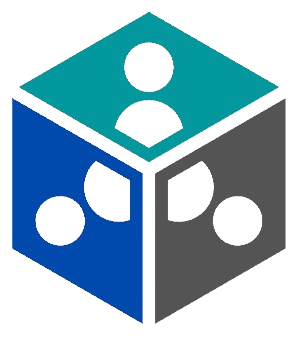Introduction: Gaming has evolved into more than just a pastime; it’s a dynamic and creative space where players can actively contribute to the gaming experience. One way players can leave their mark is by developing game mods. Modding, short for modification, allows individuals to customize, enhance, and create new content within existing games. In this comprehensive guide, we will explore the journey from being a player to becoming a creator, offering insights and practical steps on how to develop your own game mods.
Understanding the Basics:
- What is Game Modding?
- Game modding involves modifying a game’s code, assets, or mechanics to introduce new features, alter existing ones, or create entirely new experiences.
- Mods can range from simple changes like altering character appearances to complex additions such as new levels, characters, or gameplay mechanics.
- Choosing the Right Game and Modding Tools:
- Select a game that has an active modding community and accessible tools. Games like Skyrim, Minecraft, and Stardew Valley are popular choices due to their supportive communities and extensive modding capabilities.
- Familiarize yourself with modding tools specific to your chosen game. Tools like the Creation Kit for Skyrim or Minecraft Forge for Minecraft provide essential frameworks for mod development.
Building Your Modding Skills:

- Learn the Basics of Programming:
- While not mandatory, understanding the basics of programming can significantly enhance your modding capabilities. Languages like Java, Python, or C# are commonly used in game modding.
- Online platforms like Codecademy, Khan Academy, or W3Schools offer free resources for learning programming basics.
- Explore Modding Communities and Resources:
- Join modding communities and forums related to your chosen game. Platforms like Nexus Mods, ModDB, or Reddit’s modding communities offer valuable insights, tutorials, and support.
- Engage with experienced modders, ask questions, and explore existing mods to understand different techniques and approaches.
Developing Your First Mod:
- Start Small and Set Realistic Goals:
- Begin with a small, manageable project to build your skills and confidence. Setting realistic goals allows for a smoother learning curve.
- Simple mods like texture replacements, minor gameplay tweaks, or adding new items are great starting points.
- Follow Modding Tutorials:
- Many game communities provide tutorials for aspiring modders. Follow step-by-step guides to understand the modding process and gain hands-on experience.
- YouTube tutorials, written guides, and documentation from the game’s developers can be valuable resources. Learn about the impact of gaming software on platforms in our article From Console to PC.
Advanced Modding Techniques:
- Understanding Scripting and Logic:
- Delve into scripting to add more complex features to your mods. Understanding logic and scripting languages allows you to implement intricate gameplay mechanics.
- Experiment with event triggers, conditions, and actions to create dynamic interactions within your mod.
- Collaborate with Other Modders:
- Collaboration can open up new possibilities. Join forces with other modders to combine skills, share ideas, and create more ambitious projects.
- Participate in modding contests or community events to showcase your work and receive constructive feedback.
Testing and Refining Your Mods:
- Quality Assurance and Testing:
- Rigorous testing is crucial to ensure your mod works as intended. Test for compatibility with other mods, identify and fix bugs, and gather feedback from testers.
- Platforms like GitHub offer version control, allowing you to manage changes and updates efficiently.
- Gather User Feedback and Iterate:
- Release your mod to the community and encourage users to provide feedback. Use constructive criticism to refine your mod, address issues, and release updates.
- Consistent updates and improvements demonstrate your commitment to the modding community.
Sharing Your Creations:

- Publishing Your Mod:
- Choose a platform to publish your mod, such as Nexus Mods, Steam Workshop, or ModDB. Each platform has its own submission process, so follow their guidelines carefully.
- Craft an engaging mod description, highlight features, and include installation instructions to make it user-friendly.
- Engage with the Modding Community:
- Actively engage with users, answer questions, and consider user suggestions for future updates. Building a positive relationship with the community enhances your reputation as a modder.
Resources for Aspiring Modders:
To further your journey into modding, explore the resources provided by reputable gaming websites:
- GameSpot Modding Community
- IGN Modding Guides
- Fandom Modding Resources
These platforms offer additional insights, guides, and discussions to support your growth as a game modder.
Conclusion:
Becoming a game modder is an exciting journey that allows you to transition from being a player to a creator. By starting small, learning the basics, and engaging with the modding community, you can develop your skills and contribute to the diverse world of game mods. Remember, every great modder started as a passionate player with a desire to enhance and personalize their gaming experience.


